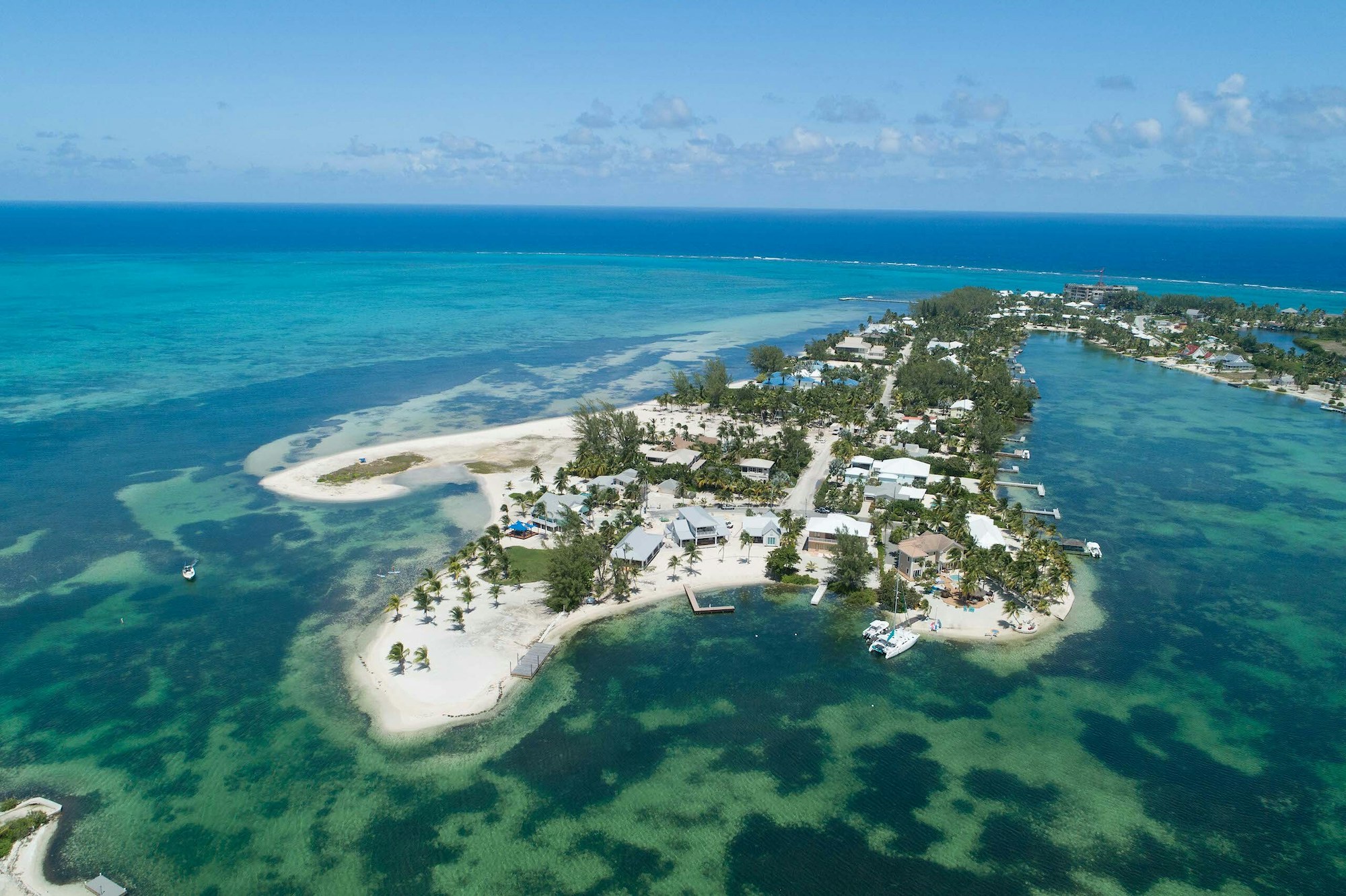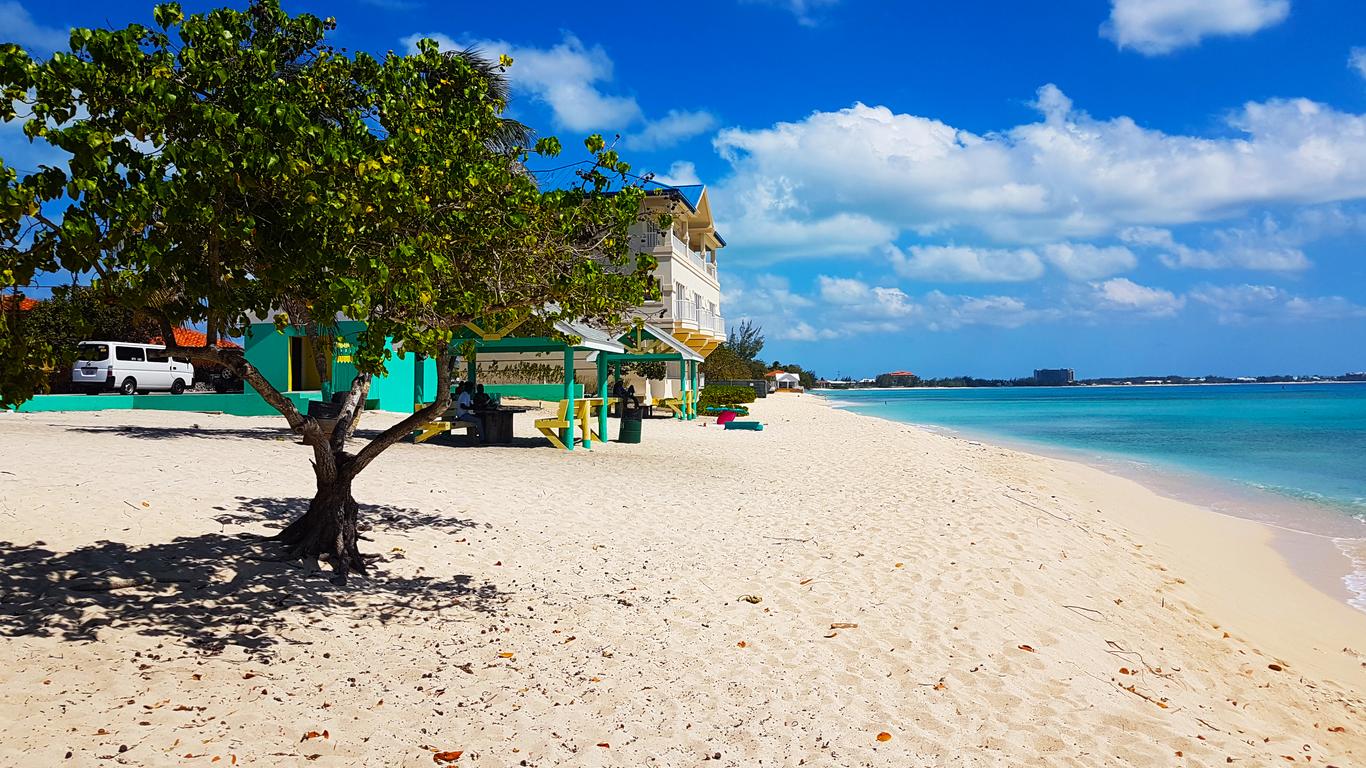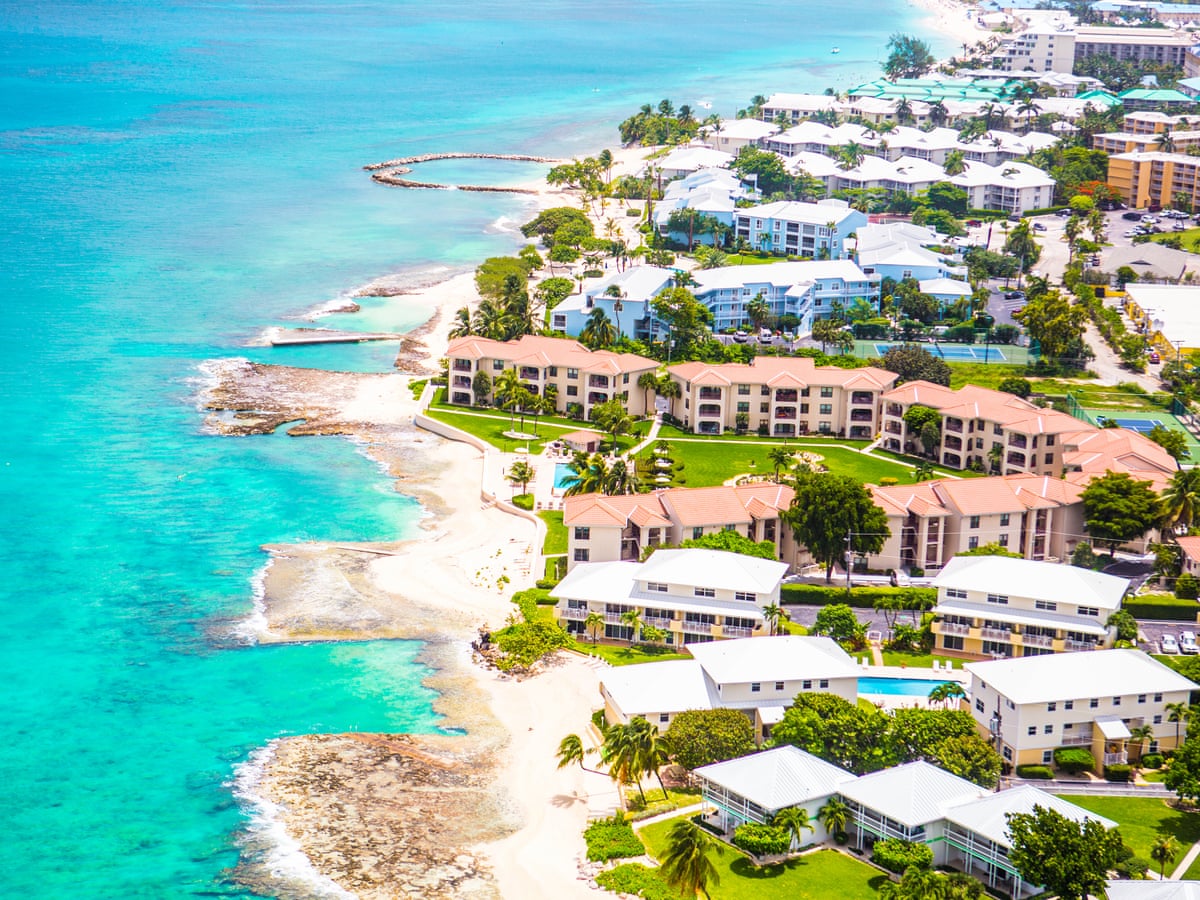Incorporate A Company In Cayman Islands In 2025

The Cayman Islands, a British Overseas Territory located in the western Caribbean, is comprised of three islands: Grand Cayman, Cayman Brac, and Little Cayman. Known for its stunning beaches, crystal-clear waters, and vibrant coral reefs, the Cayman Islands is a popular destination for tourists, especially divers and beach lovers. Beyond its natural beauty, the British Overseas Territory has established itself as a global financial centre, recognised for its favourable tax regime, robust legal framework, and stable political environment.
Standard of Living in the Cayman Islands
The Cayman Islands offers a high standard of living, making it an attractive location for expatriates, professionals, and retirees alike. The islands have modern infrastructure, high-quality healthcare, and excellent education options, including private and international schools. With a diverse expat community, the British Overseas Territory provide a multicultural environment, along with a wide range of restaurants, shopping, and entertainment options. The lifestyle is relaxed, with a focus on outdoor activities like diving, snorkelling, and sailing.
However, the cost of living in the Cayman Islands is relatively high due to the reliance on imported goods and services. Despite this, residents enjoy a comfortable lifestyle, supported by competitive salaries, especially in the finance and tourism sectors, and the benefit of no personal income tax.

Personal Taxes in the Cayman Islands
One of the primary attractions of the Cayman Islands is its tax-neutral status, which means there is no personal income tax, capital gains tax, or inheritance tax for residents. Individuals can earn and retain their income without any deductions for state or federal taxes. This tax-free environment also extends to dividends and investments, allowing residents to grow their wealth without facing additional tax burdens. While there are no direct income taxes, residents contribute to social security programs through employer and employee contributions to fund healthcare and other social services.
Corporate Taxes in the Cayman Islands
The Cayman Islands is widely regarded as one of the most business-friendly jurisdictions, particularly in the financial sector. There is no corporate income tax on profits earned by companies registered in the British Overseas Territory, nor are there any withholding taxes on dividends, interest, or royalties. This tax neutrality has made the islands a favoured location for multinational corporations, hedge funds, and investment companies looking for a tax-efficient base.
Major Industries in the Cayman Islands
The Cayman Islands’ economy is primarily driven by two main industries: financial services and tourism. The financial services sector has transformed the islands into a global offshore financial center, attracting banks, investment funds, insurance companies, and multinational corporations. This sector accounts for a significant portion of the territory’s GDP and offers substantial employment opportunities for residents and expatriates alike.
Tourism is the second-largest industry in the British Overseas Territory, centered around the islands’ pristine beaches, marine biodiversity, and luxury accommodations. The tourism industry supports a wide range of businesses, including hotels, restaurants, transportation, and recreation services, and attracts visitors from around the world.
Inflation & Cost of Living in the Cayman Islands
The cost of living in the Cayman Islands is among the highest in the Caribbean, largely due to the islands’ dependence on imported goods and limited local production. Most food, household goods, and utilities are imported, which, coupled with high shipping costs, drives up consumer prices. Housing costs are also elevated, particularly in popular areas where rental rates and real estate prices are comparable to major metropolitan areas.

Inflation in the Cayman Islands is influenced by fluctuations in currency exchange rates, energy prices, and the cost of imports. However, competitive salaries, particularly in the financial and tourism sectors, help offset these costs, and the absence of direct taxes allows for greater disposable income.
Property Tax, Services, and Sales Tax in the Cayman Islands
The property transactions are subject to a one-time stamp duty, typically around 7.5% of the property’s purchase price. This duty is paid upon the purchase of real estate and is the primary tax on property in the Cayman Islands.
There is no general sales tax or value-added tax (VAT) in the Cayman Islands. Instead, the government generates revenue through import duties, which apply to most goods brought into the territory. Import duties vary depending on the item, with higher rates on luxury goods, vehicles, and alcohol.
Types of Business Entities in the Cayman Islands
The Cayman Islands offers various business structures to suit different needs, particularly for international businesses and investors:
Exempted Company – The most popular type for foreign investors, exempted companies are primarily used for international business activities and are not permitted to operate locally. These companies enjoy tax-exempt status, minimal reporting requirements, and confidentiality protections, making them ideal for investment funds and holding companies.
Ordinary Resident Company – This type of company is intended for businesses that operate within the local Cayman economy. It requires at least 60% ownership by Caymanians and is subject to local regulatory requirements.
Limited Liability Company (LLC) – Modelled after the U.S. LLC, this structure offers flexibility in management and limited liability for owners. LLCs are often used by investment funds, joint ventures, and for asset protection purposes.
Segregated Portfolio Company (SPC) – This structure allows a company to create multiple segregated portfolios, each with its own assets and liabilities. SPCs are commonly used in the insurance and investment sectors to manage multiple projects or funds under a single corporate entity.
Partnerships – The Cayman Islands offers general and limited partnerships, with limited partnerships typically used for investment funds, venture capital, and private equity. Limited partnerships provide liability protection for investors, who contribute capital without taking on managerial responsibilities.
Licenses to Start a Business in the Cayman Islands
Starting a business in the Cayman Islands involves obtaining the appropriate licenses, particularly for sectors regulated by the Cayman Islands Monetary Authority (CIMA), such as banking, insurance, and investment management. The type of license required depends on the business structure and activities:
Trade and Business License – Local businesses, including retail stores, restaurants, and other commercial enterprises, require a trade and business license from the Department of Commerce and Investment (DCI).
Financial Services License – Businesses in financial services, including banks, insurance companies, and investment funds, require licenses from CIMA, the regulatory authority overseeing the financial sector.
Tourism-Related Licenses – Businesses involved in tourism, such as hotels, tour operators, and watersports companies, may need additional licensing and regulatory approval, often through the Department of Tourism.

Work Permits for Expatriates – Expatriate employees require work permits, which are issued by the Cayman Islands Immigration Department. The permits are employer-specific and must be renewed periodically.
The application process typically involves providing business plans, details of stakeholders, and regulatory compliance documents. The Cayman Islands government provides a well-organized, straightforward licensing process, particularly for international businesses and investors.
Opportunities for Expats for Business Growth in the Cayman Islands
The Cayman Islands offers ample opportunities for expatriates, especially in the financial services, tourism, and real estate sectors. The financial sector has a high demand for skilled professionals, including accountants, lawyers, fund managers, and compliance officers, given its status as a global financial hub.
The tourism industry also provides business opportunities for expats, particularly in hospitality, luxury accommodations, and experiential travel services. With a steady influx of tourists each year, there is significant potential for businesses that cater to high-end clientele, such as luxury travel packages, guided diving tours, and premium dining experiences. Real estate, especially in luxury residential and vacation rentals, is another promising area, as the demand for property in the Cayman Islands remains strong.
Citizenship for Expats in the Cayman Islands
Obtaining citizenship in the Cayman Islands is a challenging process, as the territory does not have a straightforward path to naturalisation for expatriates. Residency and work permits are available, but these do not automatically lead to citizenship. Expats may apply for permanent residency after residing in the Cayman Islands for a set period, typically eight years, but this process is rigorous and does not guarantee citizenship.
To become a Caymanian citizen, expatriates generally need to first obtain permanent residency and then apply for Caymanian Status, a privilege granted under specific circumstances and often limited in availability. There are stringent requirements, including proof of financial stability, a history of contributions to the community, and ties to the territory, either through marriage or family connections.

For expatriates seeking long-term residence without citizenship, the Cayman Islands offers residency permits, including options for retirees and high-net-worth individuals who meet certain investment thresholds. These permits allow for long-term stay without the full rights of citizenship, such as voting. While citizenship may be difficult to obtain, the residency options provide stability for expatriates looking to establish a long-term base in the Cayman Islands.
Why Register a Company in the Cayman Islands
Registering a company in the Cayman Islands offers numerous advantages, especially for businesses engaged in international trade, finance, or investment. The Cayman Islands is a renowned offshore financial center, primarily due to its tax-neutral environment. This tax-free setup attracts companies seeking financial efficiency and high profitability, making the Cayman Islands an ideal base for hedge funds, private equity firms, insurance companies, and multinational corporations. Additionally, the Cayman Islands provides strong privacy protections and minimal reporting requirements, allowing for confidentiality in business dealings.
The legal framework in the Cayman Islands is based on English common law, offering a stable and well-regulated environment for businesses. The jurisdiction is governed by the Cayman Islands Monetary Authority (CIMA), which ensures compliance with international standards, including anti-money laundering and anti-terrorism financing laws. Companies registered in the Cayman Islands benefit from straightforward incorporation procedures, flexible corporate structures, and access to a highly developed financial services industry. As a result, the Cayman Islands has become one of the most attractive locations for businesses looking to establish a global presence.
How to Register a Company in the Cayman Islands
The process to register a company in the Cayman Islands is efficient and transparent, facilitated by the Cayman Islands General Registry. Here’s a step-by-step outline of how to register a company:
Choose a Business Structure – The most popular choice for foreign investors is the Exempted Company, designed for international businesses not conducting local trade. Other structures include Ordinary Resident Companies, Limited Liability Companies (LLCs), and Segregated Portfolio Companies (SPCs), which serve different business needs.
Engage a Registered Agent – Every company in the Cayman Islands must appoint a licensed registered agent based in the jurisdiction. This agent will assist with the incorporation process and ensure compliance with local regulations.
Reserve a Company Name – The company name must be unique and approved by the General Registry. The name should reflect the nature of the business and must include a suffix, such as “Ltd.” or “Inc.,” depending on the company type.
Prepare Incorporation Documents – Essential documents, such as the Memorandum and Articles of Association, outline the company’s purpose, structure, and governance. These documents must be submitted through the registered agent to the General Registry.
Submit Application and Pay Fees – The registered agent submits the incorporation application and associated fees to the General Registry. Upon approval, the company receives a Certificate of Incorporation, confirming its legal status.
Obtain Business Licenses (if necessary) – Certain sectors, especially those in financial services, require additional licenses issued by CIMA.
The entire registration process is generally completed within a few days, making the Cayman Islands a fast and efficient jurisdiction for company incorporation.
Cost to Register a Business in the Cayman Islands
The cost to register a company in the Cayman Islands depends on the company’s structure, share capital, and the fees of the registered agent. For an Exempted Company, the initial registration fee starts at around $700 for companies with an authorized share capital of $50,000 or less. Companies with higher share capital incur additional fees.
Annual renewal fees, typically $800 to $1,200, apply to maintain the company’s active status. Registered agents also charge service fees, generally ranging from $1,000 to $3,000 per year, depending on the level of assistance and services provided. For companies in regulated sectors, such as banking or insurance, additional fees apply for obtaining licenses and meeting regulatory requirements. Although the costs are relatively high compared to some other jurisdictions, the benefits of tax neutrality and operational flexibility make the Cayman Islands a worthwhile investment for businesses seeking global reach.
Relation with Other Countries of the Cayman Islands
The Cayman Islands maintains strong relationships with many countries worldwide, particularly the United States and the United Kingdom. As a British Overseas Territory, the Cayman Islands has close political ties to the UK, which ensures stability and alignment with British legal standards. This relationship enhances investor confidence, as businesses benefit from a reliable and transparent regulatory environment grounded in English common law.

The Cayman Islands also enjoys a positive economic relationship with the United States, which is one of the primary investors in the Cayman financial services sector. In recent years, the Cayman Islands has increased its efforts to comply with international financial standards by signing Tax Information Exchange Agreements (TIEAs) with countries around the world, including the United States, Canada, and numerous European nations. These agreements support transparency and allow for the exchange of tax-related information, bolstering the Cayman Islands’ reputation as a legitimate and compliant offshore jurisdiction.
Any Other Taxes in the Cayman Islands
Import Duties – Since the Cayman Islands imports most goods, import duties are a significant source of government revenue. Duties vary based on the type of goods, with rates ranging from 5% to 22% for most items, and higher rates on luxury goods, alcohol, and tobacco. Import duties contribute to the relatively high cost of living but support government operations and public services.
Stamp Duty – Stamp duty is applied to real estate transactions, typically at a rate of 7.5% of the property’s sale price. Non-residents purchasing property are also subject to this duty. This one-time tax on property transactions is the closest equivalent to a property tax in the Cayman Islands, as there are no ongoing property taxes.
Work Permit Fees – Work permits are required for expatriates employed in the Cayman Islands, and these permits incur fees, which vary depending on the job position and salary. Work permit fees are a major revenue source for the government and can be a significant cost for companies employing foreign workers.
License Fees – Local businesses must obtain trade and business licenses, and companies operating in regulated industries, such as banking or insurance, must pay additional licensing fees to CIMA. These fees ensure compliance and contribute to government revenue.
Social Security, Weather, Climate & Regional Safety in the Cayman Islands
The Cayman Islands provide a strong social security framework primarily funded by contributions from employers and employees. This social security system supports residents with pensions, healthcare, and other welfare services, ensuring a stable safety net for citizens and long-term residents. Healthcare in the Cayman Islands is of high quality, with both public and private hospitals offering advanced medical care. While healthcare costs are relatively high, many residents supplement their social security with private health insurance to cover specialized treatments.
The climate in the Cayman Islands is tropical, with warm temperatures year-round, with occasional hurricanes during the Atlantic hurricane season (June to November). However, the government has invested significantly in disaster preparedness and resilient infrastructure to minimize risks associated with severe weather. The islands are generally very safe, with low crime rates and a strong emphasis on public security.

Passport Power of the Cayman Islands
As a British Overseas Territory, the Cayman Islands issues British Overseas Territories passports (BOTCs) to its citizens. This passport allows visa-free or visa-on-arrival access to over 140 countries, including European Union countries, the United Kingdom, and many Caribbean nations. However, while BOTC passport holders have broad travel freedom, it does not automatically grant them the right to live or work in the United Kingdom. The British Overseas Territory citizens seeking full access to the UK and EU benefits may apply for full British citizenship, which provides expanded rights and access. Nonetheless, the BOTC passport offers substantial travel flexibility, supporting business and leisure travel for Caymanians worldwide.
Scope of Education, Growth, and Quality of Life in the Cayman Islands
The Cayman Islands offer a well-rounded educational system, with a combination of public and private schools that meet high standards of quality. The public education system is accessible to residents and provides instruction up to secondary school level. For expatriates and those seeking international curricula, there are several private schools, including those offering British, American, and other international programs. Higher education options are available locally at institutions like the University College of the Cayman Islands, but many students pursue further education abroad, particularly in the United States, Canada, and the United Kingdom, where they benefit from Commonwealth ties.




